After the
seamless steel tube is completed, it is necessary to consider delivery,
distribution, testing and other issues. Compared with the specific production
links, these parts seem innocuous, but they play a vital role. It can be said
that they cannot be ignore.
Weighing is a
vital part of the delivery process. We need to consider both the actual weight
and the theoretical weight of the seamless steel pipe. When delivering, we need
to consider the size of the actual weight and the pipe material. In the state
after annealing, it is necessary to consider the quenched and tempered, solid
solution, and annealed states. At the same time, the surface roughness of the
seamless steel pipe, burrs, etc. need to be tested. Generally speaking, hot
rolled seamless The delivery status of the steel pipe is subject to strict
inspection by the staff after heat treatment.
Most of the
seamless steel pipes currently produced are hot-rolled technology. Because of
the high temperature, the deformation resistance is relatively small.
Generally, steel plates are used to complete the rectification rolling process.
In this operation, steel plates must also be considered. If the specific
thickness is relatively low, the problem of plate shape will not appear. It is
mainly control. That is to say, in terms of temperature control, it is also a
problem that must be considered. It can be said that the consideration of this
part is also very important.
There are clear
quality requirements for seamless steel pipes in the market, especially for
different alloy elements. The harmful elements must be strictly controlled, and
the danger of pipeline materials after production is also considered And
defects, such as cracks, internal folds, external folds, rolling, delamination,
scarring, dents, etc., these must also be controlled within the agreed range to
avoid quality problems.
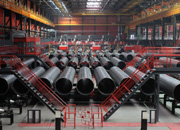 Threeway Steel is known as a professional supplier engaged in manufacturing and distributing a wide range of steel pipe, and our headquarter located the central part of China – Hunan and six associated factories throughout China.
Threeway Steel is known as a professional supplier engaged in manufacturing and distributing a wide range of steel pipe, and our headquarter located the central part of China – Hunan and six associated factories throughout China.
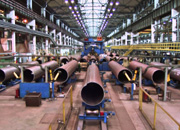 Threeway Steel is known as a professional supplier engaged in designing, manufacturing and distribution of a wide range of steel products with the headquarter located the central part of China – Hunan and six associated factories throughout China.
Threeway Steel is known as a professional supplier engaged in designing, manufacturing and distribution of a wide range of steel products with the headquarter located the central part of China – Hunan and six associated factories throughout China.
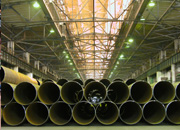 Threeway Steel is known as a professional supplier engaged in designing, manufacturing and distribution of a wide range of steel products with the headquarter located the central part of China – Hunan and six associated factories throughout China.
Threeway Steel is known as a professional supplier engaged in designing, manufacturing and distribution of a wide range of steel products with the headquarter located the central part of China – Hunan and six associated factories throughout China.
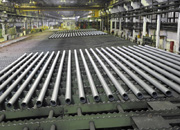 Threeway Steel is known as a professional supplier engaged in designing, manufacturing and distribution of a wide range of steel products with the headquarter located the central part of China – Hunan and six associated factories throughout China.
Threeway Steel is known as a professional supplier engaged in designing, manufacturing and distribution of a wide range of steel products with the headquarter located the central part of China – Hunan and six associated factories throughout China.
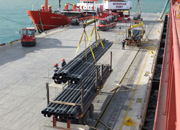 Threeway Steel is known as a professional supplier engaged in designing, manufacturing and distribution of a wide range of steel products with the headquarter located the central part of China – Hunan and six associated factories throughout China.
Threeway Steel is known as a professional supplier engaged in designing, manufacturing and distribution of a wide range of steel products with the headquarter located the central part of China – Hunan and six associated factories throughout China.

